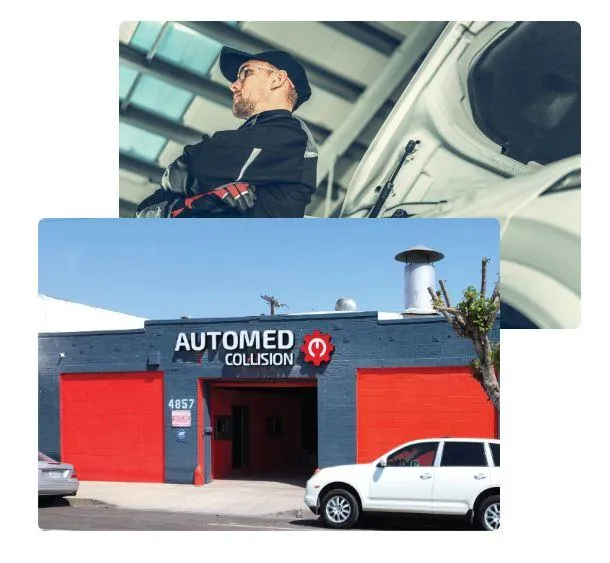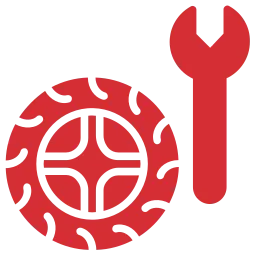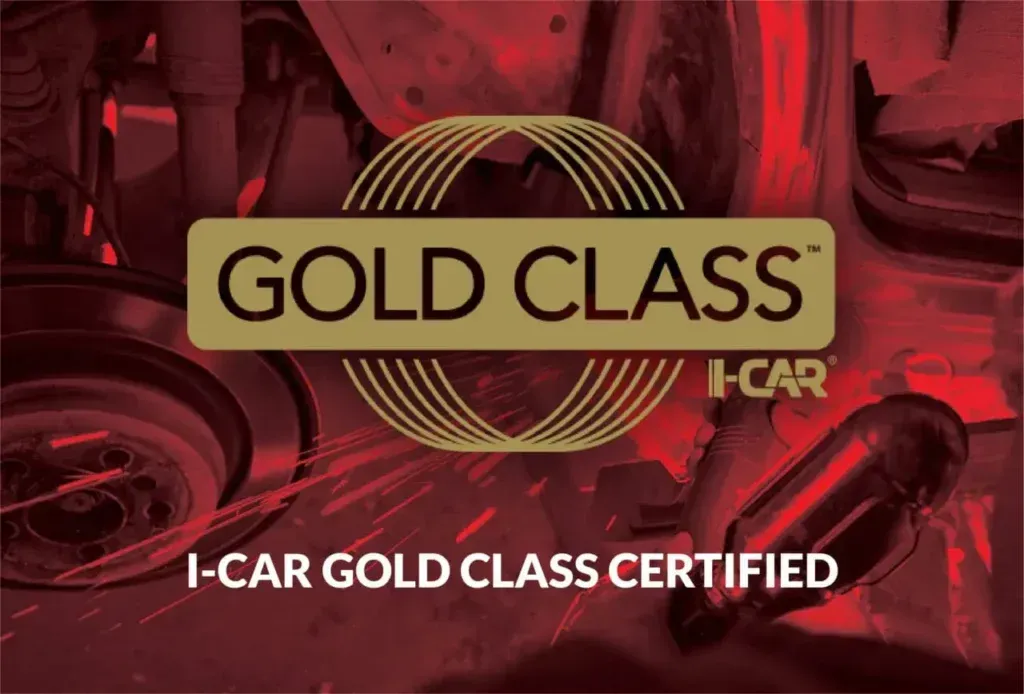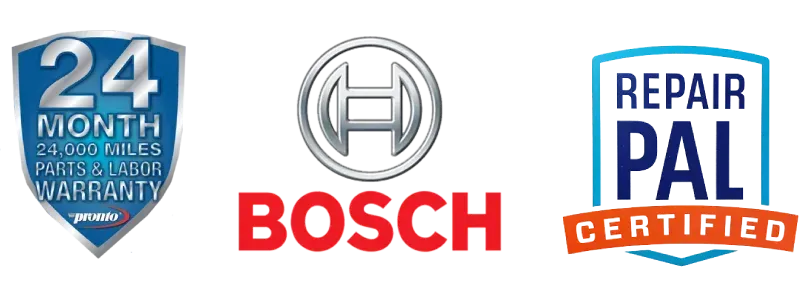Mon-Fri 8:00AM - 5:00PM , Sat 8:00AM- 2:00PM
Premium Collision Repair
Over 35 years of quality auto service
Request A Callback
You can contact us anytime
Premium Auto Collision Repair in Los Angeles, CA
Automed Collision is your place if you need auto body repair services! We are a family-owned and operated business serving the Los Angeles community for over 35 years. We are Bosch Certified and ASE Certified, so you can rest assured that your vehicle is in good hands. We offer a wide range of collision repair services to meet your needs, and we provide our customers with the highest quality service possible. We take pride in our reputation for being trustworthy and reliable, and we are confident that we can exceed your expectations. We offer free estimates and fair pricing and will restore your car to its pre-accident condition. Give us a call today to schedule an appointment!

Our Services

Collision Repair
At Automed Collision in Los Angeles, we offer high-quality collision repair services to help you get your car back on the road.

Paintless Dent Repair
We are proud to offer our customers the best Paintless Dent Repair in Los Angeles.

Fleet Services
One of the simplest, most effective and inexpensive ways to help protect the life of your car, especially its engine, is to change the oil and the oil filter regularly.

Dent Removal Service
Dent repair is a service offered at Automed Collision Los Angeles that can help to restore your vehicle's appearance.

Paint Repair Service
We understand how important your car is to you. That’s why we’re dedicated to providing the best possible service when it comes to auto paint repair.

Auto Glass Repair
REPAIRS
Full range of auto glass repair services. Whether you need a windshield replacement or a simple chip repair.

Fender Repair Service
Fender benders are unfortunately a common occurrence, especially in crowded urban areas. If you've been in a minor collision.

Calibration Services
If you’ve been in a car accident, one of the most important things to consider when searching body shops in Los Angeles is getting your sensor calibration checked.
I-CAR & ASE Certified Auto Body Shop
Auto Collision Repair is a process that requires specialized skills, knowledge, and equipment. At Automed Collision, we are proud to be an I-CAR & ASE Certified collision repair shop. This means that we have met the industry’s highest standards for training and equipment. We use the latest technology and equipment to repair and restore your vehicle to its pre-collision condition. We also work closely with your insurance company to ensure that your claim is handled efficiently and effectively. If you are looking for the best collision repair shop in Los Angeles, look no further than Automed Collision.

What Our Customers Say

Great shop did work on my driver side fender and got a new side mirror from a hit-and-run that I was in and even gave me a discount price since I was paying cash myself out of pocket. Receptionist Dana is great and the guys there do professional work. Got my car and it look like nothing ever happened even buffed the whole car and detailed. Thanks Automed you rock!!! would highly recommend to anybody.
Alex Alonso

I was referred to Automed Collision by a friend after I was involved in a car accident. The team at Automed Collision were very helpful and professional. They kept me updated throughout the whole process. They dealt with my insurance company on my behalf and made sure my car received all the repairs it needed. They also arranged my rental car! I definitely became a loyal customer. Thank you Abe and everyone at Automed Collision.
Sam G

I'm very happy I brought my Mercedes to Automed Collision following my accident for repairs. Throughout the entire process, Abe was really helpful and saw to it that my car was delivered to me in flawless condition. The level of service and attention to detail at Automed truly surprised me, and I will unquestionably be recommending them to all of my friends who own Mercedes cars. Many thanks, Abe!
Alexander Jackson
Frequently Asked Question
We now have an FAQ list that we hope will help you answer
some of the more common ones.
I was just involved in an accident. What do I do now?
First of all, we’re sorry you’re in this position and want to ensure you’ve contacted the authorities. Once you’ve done that, know that we’re here to Restore your car and will help you through every step of the repair process. Please don’t drive your vehicle if it is not road-safe due to visible or hidden damages after a collision. Our Customer Service Center can help you arrange a tow with minimal wait time or set up a time to bring your car in for an estimate.
Does my insurance adjuster need to see my car first?
Not at all. You can even drop your car off with us and have the adjuster do their appraisal here at Automed Collision. Automed Collision works closely with all the major insurance companies and can easily advise them of any work and repairs that need to be done to your vehicle. In most cases, Automed Collision will be pre-approved and you’ll only need one estimate.
How long do collision repairs take?
Every collision repair we do is unique due to the level of damage, but we will give you a timeline with your estimate and communicate with you through every step of the repair process.
How do I know Automed is better than other car repair shops?
We understand. To put your mind at ease, we always keep an open line of communication. Plus, rest assured, we won’t stop until we make it right and our repairs are backed by a 24k Mile/ 24 Month Warranty. Because your complete satisfaction isn’t just a goal, it’s what drives us. That’s why we allow customers to leave their unedited reviews right on our site.





